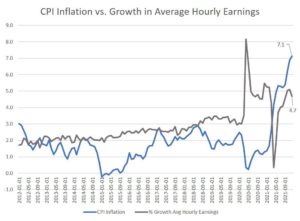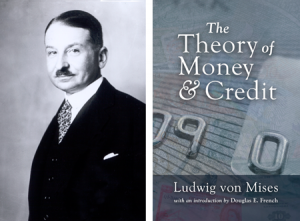In recent months, Americans were treated to a particularly cheap political spectacle: negotiations over the debt ceiling.
“Extreme right-wing Republicans have hijacked the debt ceiling process,” said Vermont senator Bernie Sanders.
“The fight over the debt ceiling could sink the economy,” intoned National Public Radio.
Florida representative Matt Gaetz said that when it comes to the debt ceiling, he sees no need to parlay with the Republicans’ “hostage.”
The hyperbole flamed and kept on flaming. The bitterly partisan negotiations dragged on and on.
California representative and speaker of the house Kevin McCarthy made the most of the moment, posing in the Oval Office with White House bigwigs and New York senator and Senate majority leader Chuck Schumer as the
Articles by Jason Morgan
Washington Has No Moral Authority to Ban Guns
May 22, 2023Another mass shooting, another call for gun control. However, when it comes to mass killings, Washington sets the sorry example.
Original Article: "Washington Has No Moral Authority to Ban Guns"
[embedded content]
Tags: Featured,newsletter
Read More »Washington Has No Moral Authority to Ban Guns
May 5, 2023After the hate crime against Christians perpetrated by a transgender shooter in Nashville in March 2023, there was the usual outcry to ban firearms.
Days after the killing spree, activists staged an insurrection at the Tennessee State Capitol calling for tougher gun laws. This despite the fact that many in favor of gun control politicized the violence and called for more of it.
However, the most jarring of all the gun-ban reactions to the Nashville attack was, to my mind, one posted by Claire Yost, a staff sergeant with the United States Army. S.Sgt. Yost, wearing her army uniform, posted a video in response to the Nashville incident arguing that guns should be banned because their “sole purpose” is “destroying” whatever they are aimed at.
Many have pointed out
Do We Need a “National Divorce”? It’s Not a New Idea
April 29, 2023We are hearing calls both from right and left for an amicable national divorce. In truth, the states were never "hitched" in the first place, at least not by any plausible definition of marriage.
Original Article: "Do We Need a "National Divorce"? It’s Not a New Idea"
This Audio Mises Wire is generously sponsored by Christopher Condon.
[embedded content]
Tags: Featured,newsletter
Read More »Do We Need a “National Divorce”? It’s Not a New Idea
April 12, 2023News reports have been studded in recent weeks with talk of a “national divorce.” Georgia congresswoman Marjorie Taylor Greene has been the face of the national divorce movement, but she is hardly alone in her view that Republican and Democrat states need to go their separate ways. For example, a March poll of American adults found that 20 percent of respondents favored splitting the country up along red and blue lines.
At the state level, too, talk of secession and redrawing state borders is heating up. Californians fed up with high taxes, crippling government regulations, and Jabba the Hutt–level bloated bureaucracy have long been discussing splitting their state into three, with six counties stretching from Monterey to Los Angeles forming the stump of
Governments “Sanction” Their Own Citizens Every Day. The Russia Sanctions Are Just a Natural Evolution.
March 19, 2022Russian president Vladimir Putin’s invasion of Ukraine in the last week of February 2022 was the culmination of decades of transnational statist expansion.
The North Atlantic Treaty Organization (NATO), which managers of the postwar Washington-centered imperium set up to counter Communist imperialism coordinated from Moscow, was rendered obsolete when the Soviet Union collapsed at Christmastide in 1991. But instead of rejoicing in the fall of an adversarial empire and scaling back the NATO alliance, the Washington-led transnational statists expanded it. One by one, eastern European and Baltic countries, many of them former members of the Soviet-backed Warsaw Pact bloc, joined the Western ranks.
Vladimir Putin made it clear that he would not tolerate Ukraine’s or
Private Security Isn’t Enough: Why America Needs Militias
June 1, 2021[unable to retrieve full-text content]In late May we learned that, after a five-month deployment to one of the most dangerous cities in the world, the American military would finally be going home. Well, not really. They already were home. The dangerous warzone was the American federal capital, Washington, DC. And the “danger” that the military was supposed to be countering was entirely government made.
Read More »The Greatest Thing the Roman Empire Ever Did Was Go Away
February 25, 2021Review of Walter Scheidel, Escape from Rome: The Failure of Empire and the Road to Prosperity (Princeton, NJ: Princeton University Press, 2019)
The Roman Empire is often presented as the fabric of Western civilization. The languages, laws, religion, mores, and implements of the Western political imaginary come in large part, in one way or another, from Rome. The Roman Empire has been rebooted time and again by invaders and latecomers, from the Ostrogoths to Charlemagne to Mussolini; transferred (in reality or in rhetoric) to Byzantine, to Moscow, to the Habsburgs, and even to Washington, DC; and recycled endlessly through books, art, movies, and plays. Whenever Westerners think of civilizational wellsprings, they usually think of togas and parapets and conquering
The Great Society: A Lesson in American Central Planning
June 13, 2020.
[Review of Amity Shlaes, Great Society: A New History (New York, NY: HarperCollins, 2019).]
Most people associate the Great Society initiative with Lyndon Baines Johnson. There is very good reason for that, to be sure. As president, Johnson, the “master of the Senate,” was the driving force behind the raft of legislation that passed during his administration, the 1964 and 1965 legislation that framed and filled in his vision for a “great society” in which the blessings of postwar America’s bonanza would be shared by all. Johnson’s spearheading of the Great Deal initiatives in turn stemmed from his personal attachment to the New Deal. Johnson had been a Roosevelt stumper in Texas before finding his feet in Washington politics, and the desire to complete FDR’s
The Japanese Love of Keynesian Economics Might Finally Be Coming to an End
May 23, 2020Even those fortunate enough to have escaped infection by the Wuhan coronavirus will by now have noticed one of the virus’ many secondary effects: the disruption of the supply chain. Sick workers at meat plants, closed restaurants, hoarding, and the sudden spike in demand for things like ventilators, masks, and comestibles with long shelf lives have thrown the global flow of goods and services into disarray. Shelves are empty, crops are rotting in the fields—supply and demand are no longer matched, and the global economy is tying up in knots.
Even the mails are bogged down. I went to a Japanese post office two days ago and was told something by the clerk there that I didn’t expect to hear in my lifetime: “Sorry, we can no longer send any letters to the USA.”
This







